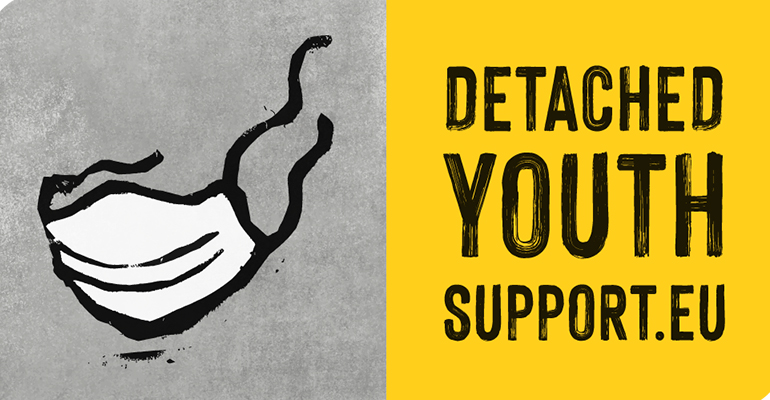Press Release
Youth Work Ireland
June 22nd 2021
“Street Engagement with Socially Excluded Young People was Critical During Lockdown” according to a report released by a leading youth organisation today.
Young people who were vulnerable and at risk of disconnecting from society and supports are now further disadvantaged than before Covid according to a new report on “detached” or street youth work by Youth Work Ireland funded by Leargas and Erasmus+. Those who already faced challenges ended up in a worse position and experienced a complete disconnect from services or supports increasing the number of NEETs (not in employment, education or training). These young people are now further at risk of long-term extreme social exclusion and poverty. The youth organisation has worked with similar groups in Finland, Sweden, Austria and Belgium in this area to use their specialist expertise to evidence the importance of working with people on the street and in communities in the context of the pandemic.
A consequence of lockdown was that the number of young people disconnected from employment, education and training supports will increase. In Ireland, for example, young people have been disproportionately affected by COVID-19 unemployment (ESRI, 2020). Young people across Europe have shared a uniquely universal experience – lockdown and post-lockdown society. Detached youth workers address the social economic impact of the COVID-19 pandemic on young people in Europe. Those young people who were vulnerable and at risk of disconnecting from society and supports are now more vulnerable and further disconnected than before. Detached responses are relevant as the most prevalent theme which emerged from the research was isolation/alienation. Young people who were previously socially excluded are now experiencing more extreme forms of social exclusion. Extreme exclusion can lead to concerning social issues such as radicalisation, a growing concern in Europe. In the context of the COVID-19 crisis we saw a rapid growth in less usual forms of radicalisation and the emergence of new types of extremist ideas and networks based on conspiracy theories and fake news, much of which is exploited by radical recruiting groups. Detached youth work is uniquely able to engage with isolated and alienated young people due to its disbursed nature.
There is a need to focus on young people who are most socially excluded and least likely to transition successfully from lockdown. Here is where the skills and energy of detached youth work come to the fore. Respondents in the research found the best practices to be being constantly visible to young people, providing packs to homes, engaging in digital youth work, and socially distanced street work. Going forward, they will need a continued focus on street work and detached delivery, increased focus on mental health, social work and support for basic security and increased focus on advocating for NEETs and employment supports. The crucial element is being present, visible and available through detached outreach.
Detached work is a viable practical method considering current restrictions, thus practical considerations such as providing youth workers with sufficient PPE will remain important. As regards practice, increasingly innovative methods are needed. This requires additional supports and professional development opportunities to empower street teams and detached youth workers to use their creativity, experiment and explore new ways of reaching young people. Methods should reflect the diversity of the main target group. For policymakers, the core is that the main target group, NEETs, already existed and this pandemic is exacerbating their situation. This group is diverse, and a one-size-fits-all solution will not be enough. The diversity of the issues facing NEETs should not be a deterrent from addressing their needs.
Contact: Eve Doran 086 078 9352
Michael Mc Loughlin 087 6677499
Link to website – Detached Youth Support



